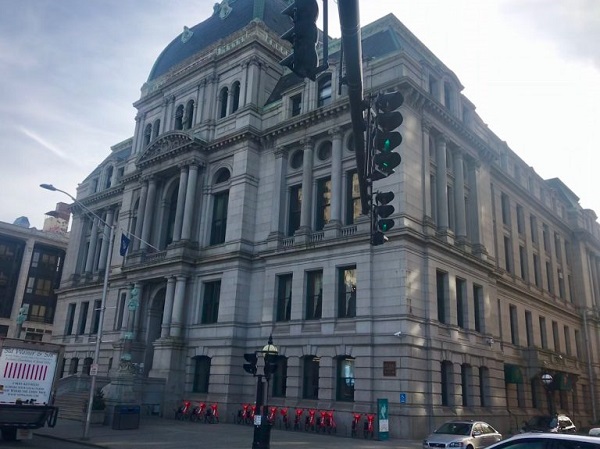
PROVIDENCE – In a special afternoon meeting Wednesday, the City Council approved two significant school-related measures, including sending a nine-figure school construction bond question to the November ballot.
The council unanimously approved in a second vote to advance a $125 million school construction bond referendum to help the city improve its struggling school infrastructure. Back on Aug. 3, officials from the R.I. Department of Education and the Providence Public School District told the council that the money would be used to create at least one new school and “significant renovations” throughout the district.
Also, Zach Scott, PPSD’s deputy superintendent for operations, told the council at the time the city would be eligible a 91% reimbursement rate, or $114 million from RIDE, from the bond, leaving just $11 million in local investment. Now, voters will decide in November to approve or deny the bond measure.
“Providence students deserve to learn in clean and safe school buildings,” Council President John J. Igliozzi said in a statement. “That’s why I fully support making this investment in our school infrastructure, but ultimately, we’re investing in our children.”
Voters will also in November have a say whether or not to have a hybrid school board, as well. The council, by an 11-3 vote, approved overriding Mayor Jorge O. Elorza’s veto to have a 10-member school board consisting of five elected members and five members appointed by the mayor.
In an Aug. 5 letter to the council, Elorza said having elections for school board members is a “terrible idea.” Also, the “grave danger” of electing school board members, Elorza said, is “special interest groups will likely run their own candidates for these seats.”
“This creates the very real risk that the interests pursued by these members will not be in the best interest of our children,” the mayor wrote. “We should avoid this at all cost.”
Ward 2 Councilor Helen Anthony, who voted for the veto – as did Ward 3 Councilor Nirva R. LaFortune and Ward 14 Councilor David A. Salvatore – said she opposed the decision to create the hybrid school board without input from stakeholders, such as parents and teachers. She said the city needs to “take a step back” and have a larger discussion on how it will reclaim the PPSD, which is currently under state control.
Anthony also said if voters approved the hybrid school board, it may have the unintended consequence of destabilizing the school system. “I just don’t think that’s something we can do right now,” she said.
However, Majority Leader and Ward 8 Councilor James Taylor criticized Elorza for trying to stop residents from “having a voice” and not vote on the hybrid school board. He also noted a charter review committee member appointed by Elorza approved the idea of a hybrid school board. Senior Deputy Majority Leader and Ward 4 Councilor Nicholas J. Narducci Jr. added that an elected school board is needed so that the city’s residents have “people who we can talk to that will listen.”
The hybrid school board question is one of 10 charter amendments voters will decide on in November as a single package.
James Bessette is the PBN special projects editor, and also covers the nonprofit and education sectors. You may reach him at Bessette@PBN.com. You may also follow him on Twitter at @James_Bessette.












